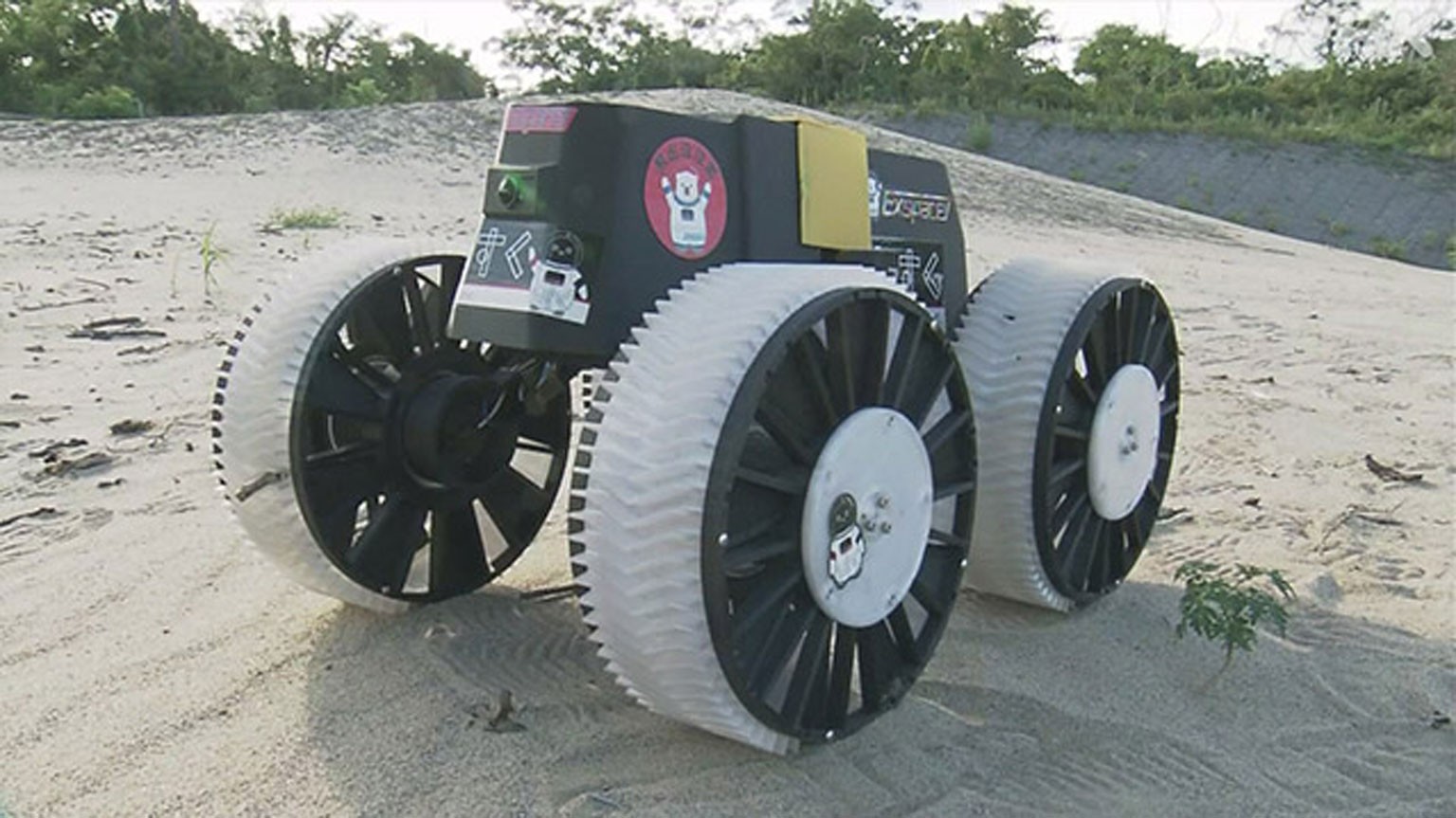Nestled amid the rugged terrain of Tottori, a coastal prefecture in western Japan, lies a vast expanse of sand dunes that bear an uncanny resemblance to parts of the moon's surface. With the dunes as their proving grounds, the firms have a crucial edge when fine-tuning equipment for the challenges of lunar exploration.
Earlier this year, Tottori Prefecture opened the 40-million-yen Luna Terrace, a 5,000-square-meter testing site on the grounds of Tottori University's Arid Land Research Center, which lies on the western side of the dunes.
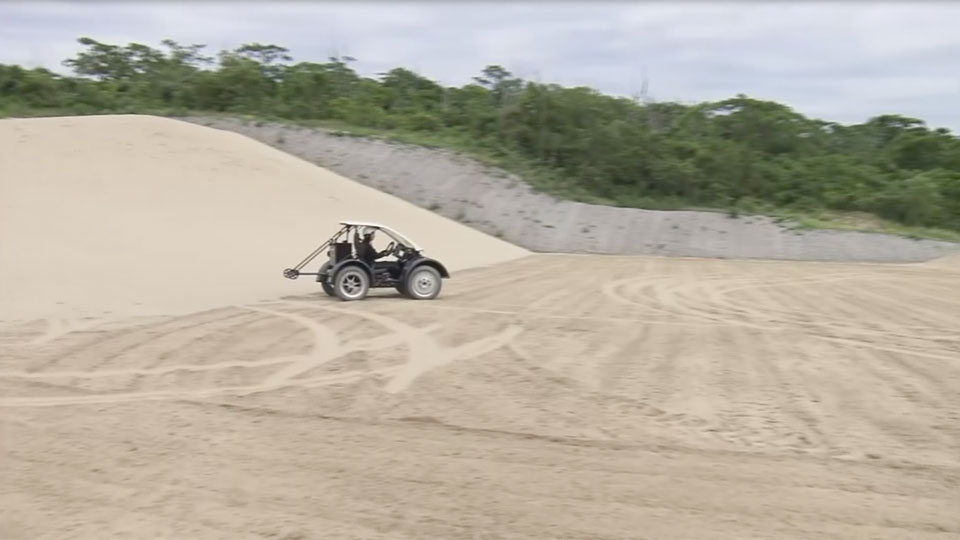
Testing tires
The prefecture says the site has already caught the interest of dozens of firms — including tire maker Bridgestone. The company is developing a set of tires that can be mounted on a lunar rover, and testing them at Luna Terrace. The tires are made with metal weave to withstand the moon's scorching temperatures.

"Once we complete prototypes, we want to test them in the field to see if they perform as expected," says Bridgestone's Ishiyama Makoto.
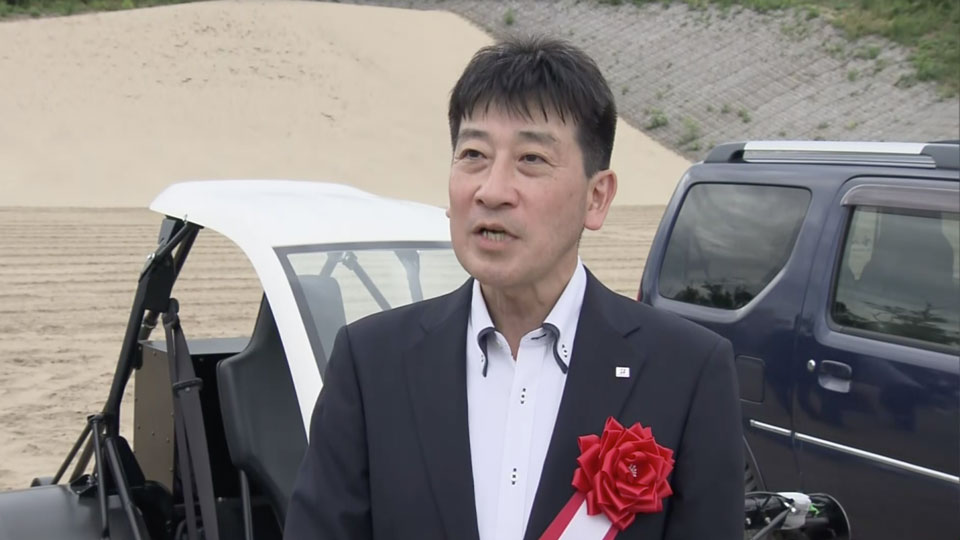
Learning from mistakes
Companies throughout Japan's space industry are benefiting in manifold ways. One example is MASUYAMA-MFG, a metal processing company in Tottori City that uses digital technology to make precision parts for small satellite bodies, as well as microscopes used on the International Space Station.
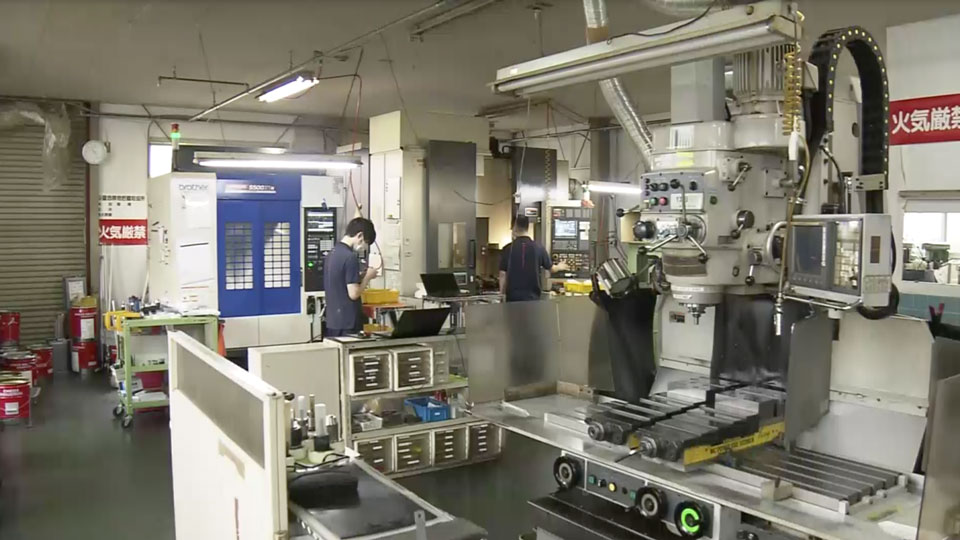
"We anticipate that as big companies take advantage of Luna Terrace, they'll discover problems they couldn't identify at the design stage," says the firm's Masuyama Akiko. "In addition to providing parts, we may be able to make proposals to eliminate those problems, so we look forward to working with renowned companies."
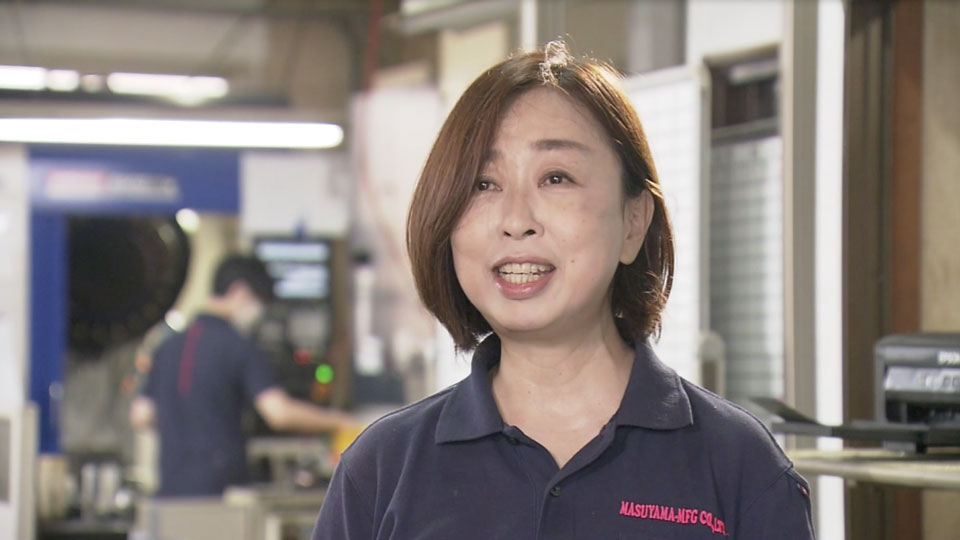
A lunar rover from Tottori
Masuyama's company is collaborating with TASUKU, a start-up from Tokyo, on a lunar rover. TASUKU's Furutomo Daisuke was quick to see the potential of the dunes as a testing ground.

In August, the two companies put their prototype — just 50 centimeters long and fitted with a small camera — through its paces on Luna Terrace's sandy surface.
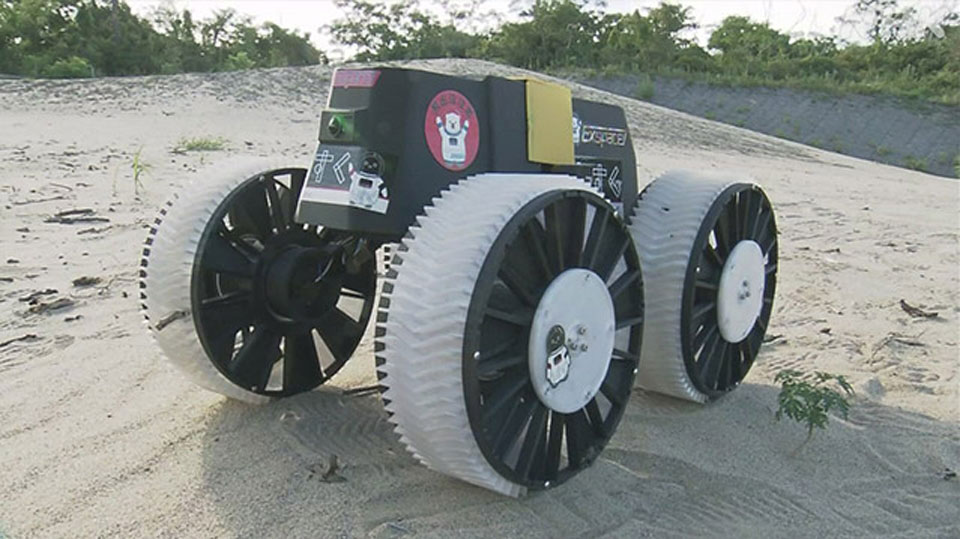
To test ease-of-use, they briefed employees from a third company for just 15 minutes, set them up at a location two kilometers away, gave them a tablet, and asked them to try to drive the device.
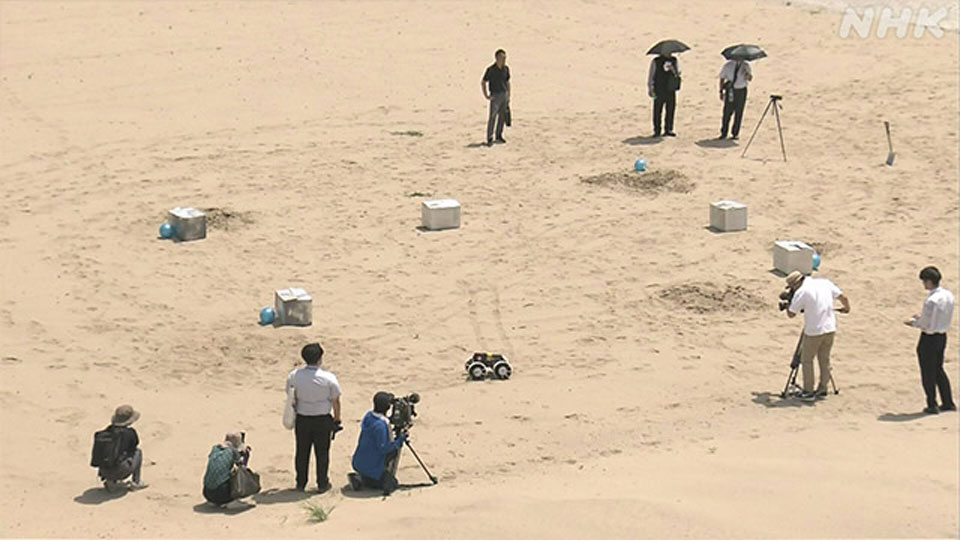
The test subjects passed with flying colors, controlling the rover with ease at all times. The tire tracks left by the rover proved that it had maintained traction and stability at all times.
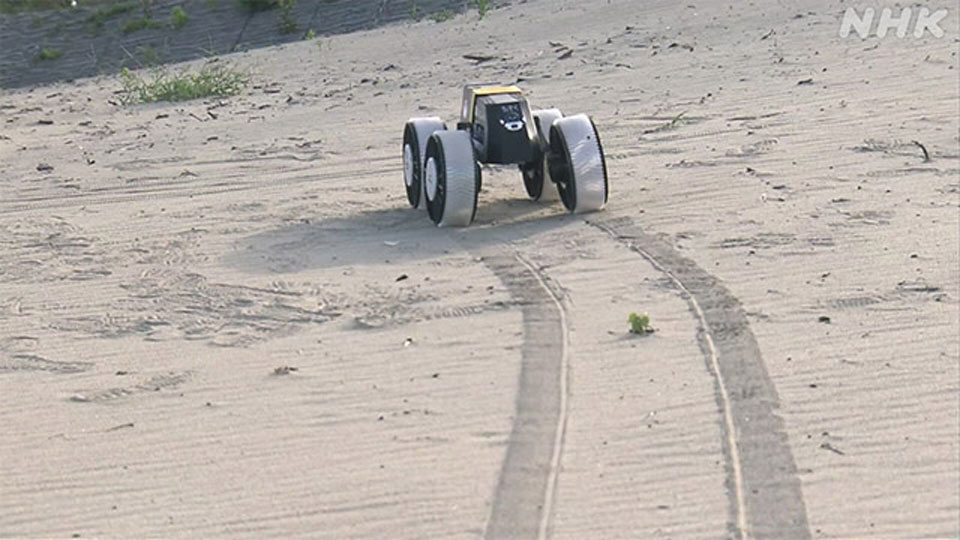
The developers are now working on increasing the rover's speed to a maximum of 60 kilometers per hour. The aim is to have the final version ready by fall next year, and to have it on the moon in 2026.
"It performed more solidly than I had expected," said Furutomo. "We want to deliver Japan's technology to the moon."
Masuyama is delighted that Luna Terrace is putting her prefecture in the spotlight. "It's nice that a company like ours, located in Tottori Prefecture, is getting recognition," she says. "I feel that the road to space begins here."
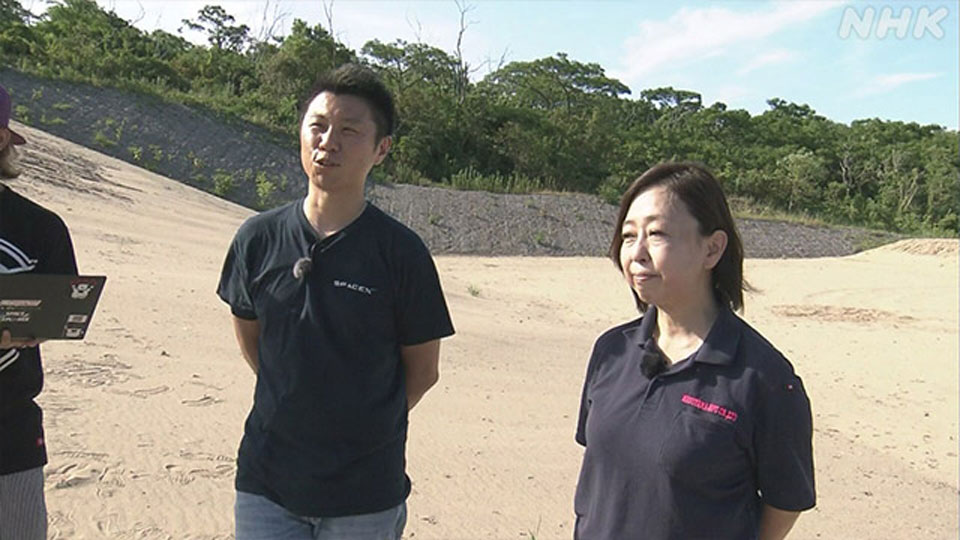
Tottori commits to space business
With a population of just 538,000, Tottori Prefecture is the smallest of all of Japan's prefectures. As young people move away in search of jobs, the number will likely decline further.
The space business is one industry that's helping to lure people back. More than 100 companies have endorsed the prefecture's support, and several have set up offices there.
"We're keen to grow the space industry," says Tottori Prefectural Governor Hirai Shinji. "It's one way we can give young people a dream for the future."
